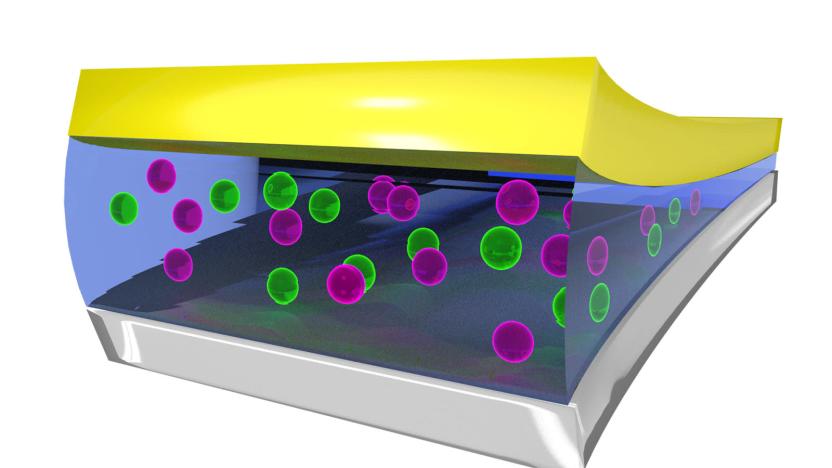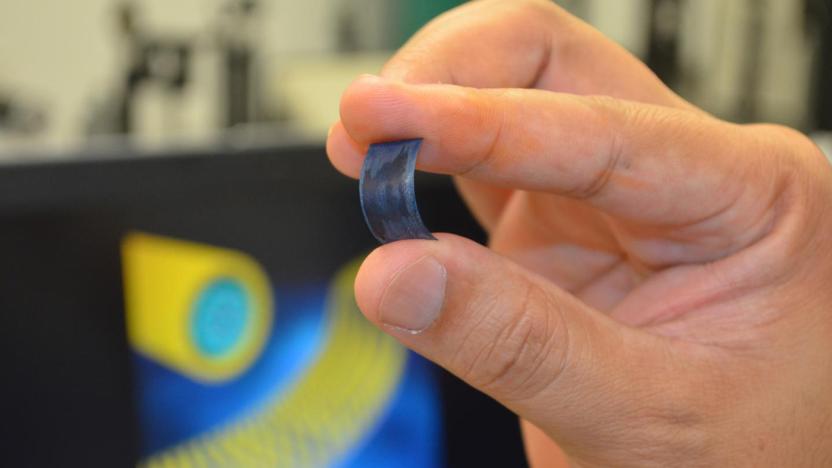EnergyDensity
Latest

'Semi-solid state' batteries could lead to cheaper, longer-range EVs
The race to create cheaper, longer-lasting batteries just got more interesting. 24M, a US Department of Energy-funded startup, announced that it has delivered semi-solid state lithium-ion batteries with energy density levels of 250 watt-hours per kilogram (Wh/kg). That roughly matches Tesla's 2170 cells used in the Model 3, considered to be the most efficient cells around. The company thinks it could do even better, making EVs longer lasting, lighter and cheaper.

Fluoride discovery could lead to much longer-lasting EV batteries
Researchers have announced a new battery breakthrough that focuses on the negative. Rather than using lithium, the most electro-positive element on the periodic table, they used fluoride, the most electro-negative. It can store more energy than its lithium doppelgänger, but until now, batteries needed to run hot at 150 degrees Celsius or more. Honda, Caltech and NASA scientists discovered a way to make it work at room temperature, which could eventually yield more energy dense and environmentally safe batteries for EVs and other devices.

New battery tech lasts for days, charges in seconds
Scientists from the University of Central Florida (UCF) have created a supercapacitor battery prototype that works like new even after being recharged 30,000 times. The research could yield high-capacity, ultra-fast-charging batteries that last over 20 times longer than a conventional lithium-ion cell. "You could charge your mobile phone in a few seconds and you wouldn't need to charge it again for over a week," says UCF postdoctoral associate Nitin Choudhary.

Army scientists juice battery voltage, hike life up to 30 percent
With the modern US soldier turning into a walking gadget, the army has some heavy reasons to lower battery weights. Its own scientists might have the answer, claiming 30 percent energy density jumps could happen using additives they developed. Those "sacrificial agent" materials would bond with electrodes to allow five volts instead of the four they've been stuck on, permitting a "quantum leap" in efficiency and weight. We'll have to see if that'll come to pass, but given the sheer volume of tech that soldiers are strapping on these days, it couldn't be too soon. To see a video of how it works, zap past the break.

Panasonic, Tesla rekindle romance, strike supply agreement for Model S batteries
Panasonic and Tesla renewed their corporate wedding vows yesterday, with a new supply agreement on lithium-ion batteries. Under the accord, Panasonic will provide Tesla with cells for some 80,000 cars over the next four years, effectively ensuring that the manufacturer will meet its ramped-up production targets for 2012 -- including more than 6,000 orders for its Model S EV. As for the batteries themselves, they'll be made using Panasonic's nickel-type cathode technology, which, according to the company, will offer the highest energy density known. Of course, we're still awaiting for the Model S to actually enter full production, but you can whet your electric appetite with Panasonic's full press release, available after the break.

Toshiba dramatically increases energy density of Li-ion battery
The last time we heard of lithium titanate battery technology was when learning about the £120,000 Lightning GT, and while we've no way to confirm, we're definitely hoping that the latest development from Toshiba ensures that we're talking about it far more frequently than once per year. According to a report over at Nikkei's Tech-On, said outfit has crafted a cell of a Li-ion secondary battery (aimed at electric vehicles, mainly) that sports an energy density as high as 100Wh/kg. Needless to say, the invention relies on lithium titanate for its negative electrode, and considering that Tosh is currently producing a 4.2Ah cell with an energy density of around 67Wh/kg for electric bicycles, it's easy to see what kind of improvement we're staring at. Now, if only this stuff could be applied to AA cells, our power-gulping camera flash would be forever grateful...


